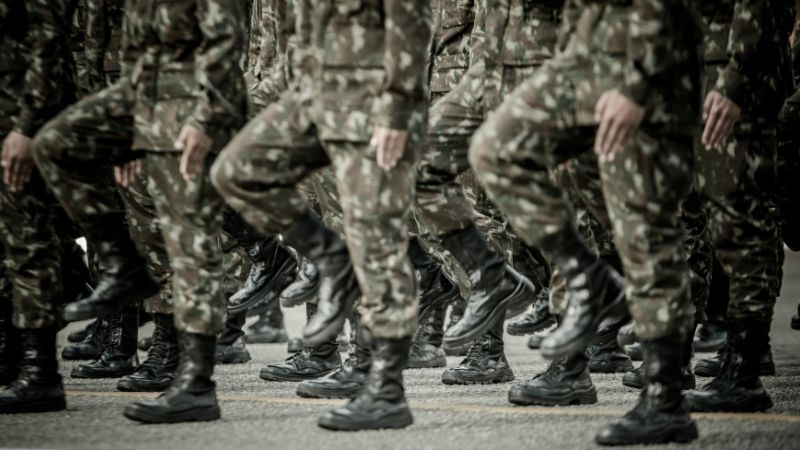The National Association of People Living with HIV Australia (NAPWHA) has welcomed a recent change in policy by the Australian Defence Forces (ADF) in relation to people who have been diagnosed with HIV.
Previously the armed forces Health Assessment Entry Policy meant those who had HIV, or those who were found to be carrying the virus during the recruitment health checks, were not eligible for employment.
Under the new policy people living with HIV are not automatically rejected, instead they will be accessed on a case-by-case basis.
In a statement the ADF said that people who had an undetectable viral load, were on treatment, and not immuno-compromised would now be able to serve in most roles.
Since March 2024, ADF candidates living with HIV are assessed on a case-by-case basis, with consideration of their response to treatment, overall health status, their functional capability and the occupational requirements of the role they are applying for.
For example, an individual who is living with HIV but stable on treatment, with an undetectable viral load, normal immune function and is otherwise well (i.e. has no complications) would generally be considered suitable for roles in the ADF.

A spokesperson for the Department of Defence told OUTinPerth the retention and growth of a highly skilled Defence workforce is an immediate priority for the Australian Government.
“Entry to the Australian Defence Force (ADF) is assessed through a comprehensive process including meeting eligibility and entry standards, security requirements, criminal history check, and undergoing medical and psychological assessment.
“Defence members living with HIV are supported by Defence to continue their treatment while serving, in line with the standards of medical care for all medical diagnoses.
“Initial entry medical assessments are used to ensure candidates meet the minimum medical and physical standards necessary to undertake military service.” the spokesperson said.
“A significant number of new treatments, new medications, and other therapies are now available for many conditions that were not available at the time some Defence policies were developed.” they added.
Alongside people living with HIV the new guidelines also allow for a wide range of conditions that may have previously ruled people out of being able to serve. This includes people with a history of musculoskeletal injuries, including broken bones, and women who were rejected due to a history of endometriosis but who have now been successfully treated.
In the past the defence forces might have considered some orthodontic appliances, such as braces, as a reason to reject applicants. Those with a family history of glaucoma, or other mild eye conditions such as foreign bodies or corneal scarring would have also been looked over.
Skin conditions such as acne, dermatitis and psoriasis, a history of a pilonidal sinus, people with treatable vitamin deficiencies and people who had been treated for infectious diseases would have also been knocked back.
In the past applicants with many conditions would have been rejected outright, now a more individual approach is being taken.
“Candidates will undergo a review by an ADF Careers Medical Officer during the recruitment process, and they will be assessed individually as to their suitability to serve from a functional and occupational perspective, rather than being rejected outright on the basis of a diagnosis.” an ADF spokesperson told OUTinPerth.
Reforms welcomed by HIV AIDS Legal Centre and the National Association of People Living with HIV Australia
The reforms have been welcomed by the HIV/AIDS Legal Centre, and the National Association of People Living with HIV Australia (PLWHA) who say the decision sees the removal of one of the last employment barriers against people with HIV in Australia.
The law which allowed the ADF to be exempt from standard anti-discrimination legislation had been unsuccessfully challenged in court several times.
In a statement HALC and PLWHA said they are incredibly proud of the Australian Government’s clear commitment to ensuring equality for all PLHIV and look forward to the breakdown of further human rights barriers for PLHIV in the near term.
The change in policy comes as the defence forces struggle to attract enough new recruits to their ranks. They’ve just launched a new recruitment website which they say will allow potential candidates more opportunity to for deeper and more extensive job role exploration.
Speaking recently to advertising website Mumbrella, Jan Wiltshire, Commodore Royal Australian Navy and Director General DFR, said they had ambitious targets to achieve.
“The Australian Defence Force has ambitious recruitment targets to achieve by 2030 and this requires a bold and candidate-first approach to acquisition marketing. The new ADF Careers website represents a key milestone in the evolution of Defence Force Recruiting’s offering.”
Last month it was revealed the ADF is currently facing a short fall of around 4,400 workers, leading to the government bringing in some significant changes to the requirements for entry.
From July New Zealanders who have been living in Australia, but are not Australian citizens, will be able to apply to serve in Australia’s defence forces, as long as they have not been a member of another country’s military in the previous two-year period.
From January 2025 British, United Kingdom and US citizens who pass security checks and meet the same criteria will also be able to apply for employment in the Australian forces. Those accepted would be expected to apply for Australian citizenship after 90 days.
Information on joining the ADF is available at https://www.adfcareers.gov.au/careers/joining.





